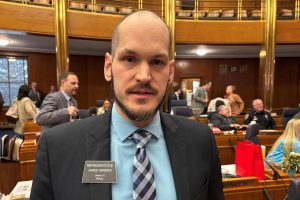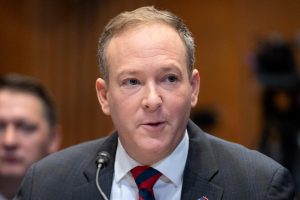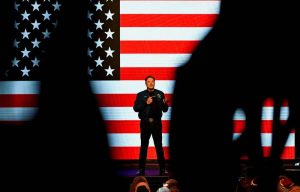No Primaries, No Alternatives, No Scrutiny: ‘Anti-Democracy’ Reigns In US

On July 21, US President Joe Biden announced he would not seek reelection. The announcement came after Democratic primary voting had completed, leaving Democratic voters with no say in the party’s nominee. Meanwhile, third-party candidates are being stonewalled at every turn and the media pretends this is all normal.
The American electoral process has degraded into a shambling shell of its former self, propped up with vapid, slick and committee-tested PR campaigns rather than debate. Over the past week, with the tickets of the two major parties all but finalized, the media can not bring themselves to ask a substantive question of either person likely to sit in the White House in less than six months.
“My question is,” YouTube personality and WWE United States Champion Logan Paul asked former US President and Republican nominee Donald Trump, “for other young people in this country who are looking to get ahead, cause for a lot of them, times are tough right now. What would you say to them, kids who want to pursue their own version of the American dream and try to achieve their wildest dreams?”
Trump answered that young people should vote for him.
Meanwhile, Harris sat down for a non-televised interview with People, which asked her about her relationship with her husband, how much sleep she gets and her favorite nickname (“Momala” as it turns out) but not any policy positions on the economy, immigration, Ukraine or Gaza.
Even Paul and his “Impaulsive” co-host Mike Majlak had the good sense to ask Trump about those topics, even if they didn’t challenge him on them.
This is what passes for scrutiny in American politics. Worse, the incumbent president’s party all but refused to hold a primary. Then Biden suddenly resigned from the campaign after weeks of refusing to and his vice president was anointed the new nominee without receiving a single vote. On Saturday, Pulitzer Prize-winning journalist Seymour Hersh reported that Vice President Kamala Harris and former President Barack Obama threatened to invoke the 25th amendment and force Biden out of office if he did not drop his reelection campaign.
“The lords of capital decided that he had to go and, in fact, they made it quite clear he had to go because they said that not only would they stop contributing to his campaign, but they told the DNC get rid of Joe Biden or don’t expect any financial support for any Democrat candidate down ballot,” argued political activist and the 2016 Green Party Vice Presidential nominee Ajamu Sibeko Baraka on Sputnik’s Political Misfits. “This is clear elite extortion.”
To shore up the perception of support, the Harris campaign hosted a series of Zoom calls, bizarrely segregated by race and gender. Black Men for Harris came first, then Black Women for Harris. Then White Women for Harris and finally, White Dudes for Harris.
“It is sort of a silly Zoom call,” said Baraka. “But it does reflect the kind of identity reductionist policies we have in this country.”
On the other side of the aisle, things were only slightly more democratic. The Republicans actually held debates, though the only candidate anyone really cared about didn’t participate. In a healthy democracy, Trump’s refusal to face Ron DeSantis and Nikki Haley and the rest would have been seen as a sign of arrogance–if not fear– in a healthy democracy. This year, few seemed to care.
When the most democratic thing you can say about the two-party system is that one of the parties’ candidates received actual votes in the primary, and that’s the party that is accused of trying to end democracy, it is clear things have gone off the rails.
As the Democratic party argued in court after being sued for allegedly rigging the 2016 primaries in favor of Hillary Clinton, the two-party system is not technically part of the government, and are free to run their primary process however they like, even picking a candidate no one voted for, as they have done with Harris.
But in the media, and even in some classrooms, the US system of politics is often described as a two-party system and the two parties make sure it stays that way.
In 1992, Reform Party candidate Ross Perot led both Bill Clinton and George H. W. Bush in the polls after a strong debate performance. His campaign sank after he inexplicably dropped out in the summer before reentering right before the election. Perot claimed the GOP blackmailed him with doctored pictures of his daughter but the accusation was never seriously investigated. The close call nevertheless scared the two parties enough that they worked to make sure it would never happen again.
After the ‘92 campaign, the Commission of Presidential Debates, which touts its “bipartisanship” because it is staffed with Republicans and Democrats, increased the requirements for third-party candidates, increasing the national poll numbers a candidate needs to qualify from 5% to 15%.
That Perot did not reach 15% until after he appeared on the debate stage with Clinton and Bush was not lost on the Perot campaign, which ran a series of ads in 1996 decrying the decision to no avail. In the 1990s and early 2000s, it was virtually impossible for a candidate to achieve those numbers without the assistance of the media.
As the internet grew and surpassed traditional media in importance, that began to change. Early in this election cycle, it looked like Independent candidate Robert F Kennedy Jr might come close to reaching the 15% required to earn a spot on the debate stage. Perhaps not coincidentally, the two parties dropped the debate commission entirely and partnered with media outlets to devise a new set of requirements that Kennedy and other alternative candidates had no chance of reaching.
“This was the entity that was supposed to be managing the debate process for the candidates, for the parties. But that was a process in which, even though it was a difficult one, that third parties could participate,” explained Baraka. “But they decided that they weren’t going to have any possibility of third party participation. And so, they abandoned that process and developed a relationship between the parties and the news media, and [so it’s] also reflective of the anti-democratic character.”
Earlier this month, Sputnik reported that the US Treasury halted funds awarded by the FEC to the campaign for Green Party candidate Jill Stein after the campaign hit the required milestones.
In March, the New York Times reported that Democrats were preparing an “aggressive counter” to “third-party threats,” writing that “[c]onventional wisdom within the Democratic Party now is that any vote not for Mr. Biden benefits Mr. Trump, and there are concerns that giving people more choices on the ballot is more likely to hurt Mr. Biden.”
Now, presumably, it must be that any vote not for Harris benefits Trump, and no one outside of the leadership of the DNC had any say in it.
“These are all examples of why the struggle has to be in this country, to redefine what real democracy is and have people prepared to struggle for them and not fall prey to this appeal to a lesser of two evils that is backward, reactionary, anti-democratic and profoundly dangerous,” concluded Baraka.


